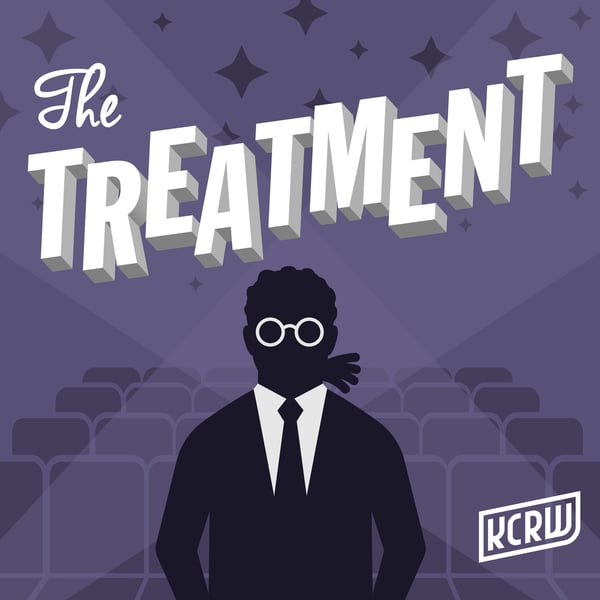Jeremy O. Harris: ‘Slave Play’
The Treatment
KCRW
4.6 • 639 Ratings
🗓️ 1 March 2022
⏱️ 29 minutes
🧾️ Download transcript
Summary
This week on The Treatment, Elvis welcomes playwright Jeremy O. Harris, whose play “Slave Play” is at the Mark Taper Forum until March 13. The play received 12 Tony nominations, the most ever for a play. Harris also co-wrote the screenplay for the 2021 film “Zola.” Harris tells The Treatment that some of his inspiration for “Slave Play” came from two controversial films he watched as a child. He says he wants the play to make audience members feel uncomfortable and have tough conversations about race. But Harris also says going to the theater shouldn’t feel like someone is making you eat your vegetables.
Transcript
Click on a timestamp to play from that location
| 0:00.0 | From KCRW Santa Monica and KCRW.com, it's The Treatment. |
| 0:14.6 | Welcome to the Treatment, the Home Edition. I'm Elvis Mitchell. My guest, Jeremy O'Harris, is the author of one of the most acclaimed and |
| 0:23.3 | controversial and fascinating plays the last 10 years. The play is, of course, Slave Play. The |
| 0:30.0 | newly inaugural play at the Mark Taper Forum, Jeremy, I can't tell you how happy I am to have you |
| 0:35.4 | here in doing the show. Thank you so much. You have no idea how excited I am to be talking to you. You're, like, I can't tell you how happy I am to have you here doing this show. Thank you so much. |
| 0:49.5 | You have no idea how excited I am to be talking to you. I think for a lot of young, black, nerd, cinema and otherwise, like, you held a very special spot in my heart growing up. |
| 0:51.9 | So this is a really cool experience. |
| 0:55.2 | If I could blush, I would. But instead I will do this. |
| 1:00.7 | I took some time to, after I saw the show in New York, to look at the resources. |
| 1:06.9 | And what I found fascinating about it is so many of the plays that you reference, it's great for us. |
| 1:07.4 | They're mostly by women, which is kind of wonderful. |
| 1:10.6 | And they also kind of deal with that mostly by women, which is kind of wonderful. And they also kind of |
| 1:11.6 | deal with that idea of identity, which is people sort of playing something in the middle of |
| 1:16.8 | something happening around them. And I want to talk to you about that because I just think that |
| 1:21.3 | idea playing with identity is so crucial to this play and clearly crucial to the way |
| 1:27.3 | you experience theater, isn't it? |
| 1:29.4 | Oh, absolutely. I mean, it's how I engaged theater. It's like I had this moment the other day |
| 1:35.6 | where I was thinking someone at the Blackout Night asked me, was it emotional writing it? Because |
| 1:42.3 | they were a performer. |
| 1:45.7 | And they came to me and they were like, |
| 1:47.9 | how did you write all these characters? |
| 1:50.2 | It feels like I could feel the emotions of every character as you were like, |
... |
Please login to see the full transcript.
Disclaimer: The podcast and artwork embedded on this page are from KCRW, and are the property of its owner and not affiliated with or endorsed by Tapesearch.
Generated transcripts are the property of KCRW and are distributed freely under the Fair Use doctrine. Transcripts generated by Tapesearch are not guaranteed to be accurate.
Copyright © Tapesearch 2025.

